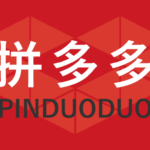Disclaimer: this website uses Cloudflare services for security and performance.
Will Going Public Change Cloudflare
After the rumours, delays and speculation, Cloudflare’s intention to list on the NYSE was officially confirmed, in what is likely to be the most controversial tech unicorn IPO of the year. A multi-billion-dollar market valuation is expected, even given the difficult market conditions and headwinds of the increased scrutiny into tech companies, concerns over digital content governance and the trade war. With the Cloudflare SEC filing being a little over a week after the global cloud network services provider terminated the provision of services to the “lawless by design” forum 8chan, the IPO is a timely microcosm mirroring the debate regarding the future of our digital lives.
The decision to terminate 8chan was not unprecedented, with the Cloudflare blog announcement regarding 8chan reflecting on the Daily Stormer controversy from 2017. The relative infrequency of such actions highlights the reluctancy of Cloudflare to enforce content governance across their network. After each termination of services, the company released a lengthy rationale justifying the decision, in what reads as an apology to the internet community. Partly, as with many digital service providers, they fear the backlash from all directions and potential fall in customers. Attempts to take Cloudflare offline are well-documented, as too are the calls for Cloudflare to take a stronger stance against intellectual property infringement, including numerous lawsuits targeting the company. Depending on the party involved, the debate is shaped around different principles, covering censorship, content governance, platform liability, facilitation of criminal activity, privacy, piracy and digital libertarianism.
The Rule of Law?
Both blog announcements post-termination cover similar ground, warning against opening the floodgates in so turning Cloudflare into internet police and calling for regulation to be implemented by proper authority rather than companies. However, the tone in the 8chan blog is very different with the emphasis moving from content governance and due process in the Daily Stormer case, to the Rule of Law in the case of 8chan. With the Rule of Law framework significant effort was made to put 8chan within the scope without opening space for other websites to be included. The term “lawless” was used five times, including describing 8chan as “uniquely lawless” and a “cesspool of hate”.
Applying the Rule of Law framework lacks credibility when Cloudflare refuses to take similar actions against other websites which abuse their provision of services. Judging 8chan by the extent of lawlessness undermines the entire Rule of Law concept as argued by Cloudflare, placing the capricious determination of lawlessness in the hands of a private company which supersedes the law. The Rule of Law framework as set out by Cloudflare is circular, and therefore unworkable. As such, the decision to terminate 8chan can only be viewed as content governance (or censorship) based on a private company acting as the arbiter of their own terms of services. This practice may sound scary to some, but organisations across the internet going beyond their purely legal obligations to moderate content is standard practice, from platforms to host, registries, ISPs etc. Cloudflare fall into this category with the termination of the Daily Stormer and 8chan.
Content Neutrality
Most major tech companies would like to be content neutral and not subject to regulations applying to media companies. This is partly why media companies, and other non-tech companies frame themselves as tech companies. Unlike many of the companies struggling with content governance issues, Cloudflare provides a purely technical service, with no impact on the content and is neutral as to the other intermediaries. The SEC filing listed trust and neutrality as wins, along with alignment “with the interests of our customers” – with over 20 million internet properties being served the company has a wide range of interests to align with. Generally, this approach has manifested in zero oversight; simply providing a network which benefits customers, without regard to how customer content impacts other internet users.
With greater access to public funds comes greater public scrutiny. Many unicorns have excited investors initially, only to see significant chunks of market valuation fall away due to a perceived lack of strong regulation of content. The stock price of Chinese ecommerce platform Pinduoduo fell almost 20% after reports the platform did not have robust measures in place to tackle counterfeits. Cloudflare recognised the “Activities of our paying and free customers or the content of their websites and other Internet properties could subject us to liability” as a key risk factor. Furthermore, such activities, and even Cloudflare’s response (or non-response) was identified as a risk factor in terms of “adverse political, business, and reputational consequences” which could occur.
A Brand Risk
Cloudflare stated the use of their network for hostile, offensive or inappropriate content was a reputational risk, whereas action taken by Cloudflare in suspending such websites represented not only a reputational risk, but would also harm their brand. Being associated with criminal activity and egregious behaviour was not perceived harmful to the Cloudflare brand. It was accepted some high-profile companies refuse to work with Cloudflare due to websites utilising the network. Other risks to the Cloudflare brand were security breaches, onerous legal obligations and liability, and the failure of Cloudflare to protect their own intellectual property. With a brand being “a prism and a magnifying glass through which products can be decoded”[i], it could be said that the decision to suspend 8chan was taken as to get ahead of the issue prior to IPO intentions becoming public.
“Nearly the same thing happened on 8chan before the terror attack in Christchurch, New Zealand.” – this statement was given partly in argument by Cloudflare in the suspension announcement. The Rule of Law framework seemingly only applied after a second massacre was linked with 8chan. Whilst the move can be seen as cynical given the timing of the IPO filing, the greater issue is whether going public will lead to greater transparency in content governance policies or even stricter content governance policies. The company should not be held responsible for all activity on their network as this would have an enormously chilling effect across the internet. But transparent policies applied consistently should be the minimum any large company should provide. Flimsy frameworks which mask the lack of clear policy are not sufficient. The brand or reputational or marketing risk is vested parties which feel not adequately provided for by Cloudflare’s policies reacting negatively and the surrounding publicity drags down the share price. However, without clarity, content governance issues will be continually levied against any the network from all sides. It remains to be seen whether Cloudflare will change policy positions towards content governance as the company gears towards IPO.
[i] J.N Kapferer – The New Strategic Brand Management (highly recommended)
https://www.koganpage.com/product/the-new-strategic-brand-management-9780749465155



